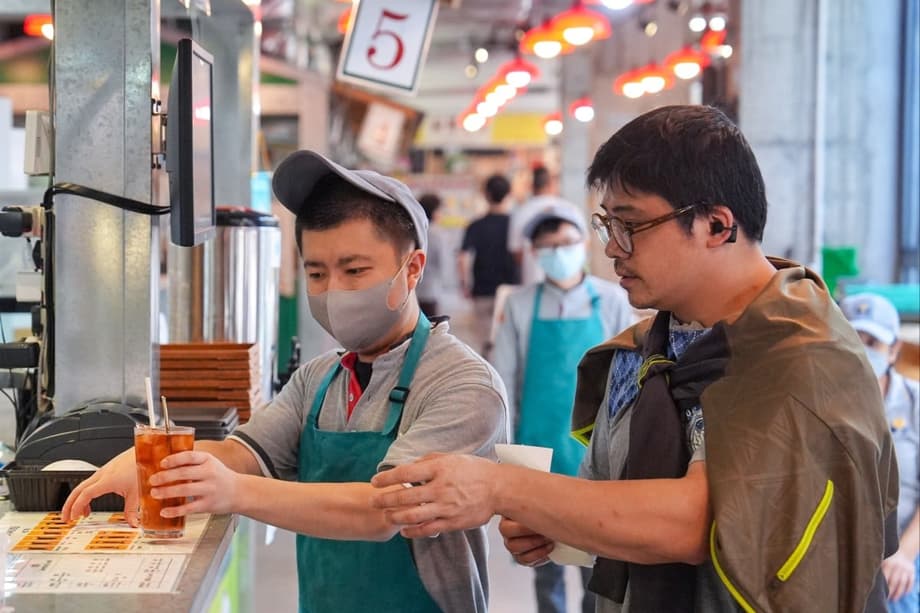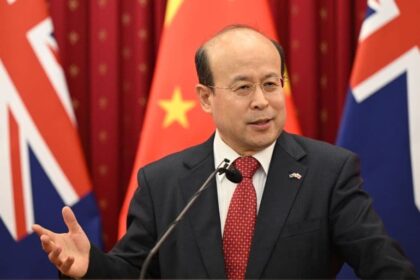Why the Mong Kok social enterprise is at a crossroads
Dignity Kitchen in Mong Kok has become a rare bridge to paid work for people with disabilities in Hong Kong. The Singapore founded social enterprise trains and employs staff across the kitchen, service, and delivery, then helps many move into long term jobs with other employers. That model now needs local stewardship. Founder Koh Seng Choon, who underwent heart surgery in March, says he can no longer shuttle to Hong Kong as often as the operation requires. He has renewed his call for a Hong Kong based partner to help run the enterprise and safeguard its mission.
The ask is clear. Koh is seeking a person or team with experience working with disabled communities, the skills to run a food business, and the willingness to commit HK$2 million in the first year. He says more than 30 parties responded after he went public with the appeal in June, ranging from NGOs and charities to catering firms and consultants. None fit the mission focused brief. Some were keen to grow their catering footprint rather than maintain a training and placement center. Others, especially NGOs facing budget pressure, lacked funds to take on the responsibility.
Closing the restaurant was on the table at one point. Koh reconsidered after visiting the Mong Kok site and seeing staff in action. The Hong Kong branch currently employs about 78 people, roughly four in five of whom have a disability. Since opening in 2019, the team has provided paid training and placed more than 200 people in jobs across the food and beverage sector.
What is Dignity Kitchen and how does it work?
The Hong Kong branch sits on the second floor of a restored pre war building at 618 Shanghai Street. It looks and feels like a Singaporean hawker center. Stalls serve chicken rice, laksa, nasi lemak, claypot rice, spicy rojak, and pandan chiffon cake. The difference is the workforce and the purpose. The kitchen hires, trains, and pays people with physical, sensory, intellectual, and psychosocial disabilities. It runs a train and place program that prepares trainees for sustained employment, often with external employers who get staff with real kitchen and service experience.
The space is designed for inclusion. A drink counter is run by a deaf barista, with sign language diagrams for customers. Staff with autism learn food preparation and service routines that help build confidence. A worker with visual disabilities handles administrative tasks using voice to text tools. The team operates a pay it forward scheme so visitors can purchase meals that are then delivered to people in need, including nursing homes and shelters.
Dignity Kitchen is part of Project Dignity, launched in Singapore in 2010. Over the years the initiative has trained and placed thousands of people in work across Asia, matching roles to each person’s abilities. Beyond the core food hall, the project hosts corporate team activities, community events, and cooking classes. The mission remains consistent across markets, to restore dignity through real skills and real jobs.
Why a local partner is needed now
For six years, Koh flew from Singapore to Hong Kong roughly every two months to oversee the site. After surgery in March, that routine is no longer viable. The operation needs a local leader who can handle daily decisions, coach trainees, manage suppliers, build employer networks, and keep the organization focused on training and placement rather than purely commercial growth. To shore up finances, Koh says he could dilute his stake in the Singapore based parent, though he describes that as a last resort to raise funds.
The pool of respondents to his June call was encouraging in number but not in fit. Budget cuts have constrained many NGOs, while some commercial groups were drawn to the brand and foot traffic more than the training commitment. Koh stresses that the partner role is first and foremost about people. It requires patience, experience with disability inclusion, and the appetite to invest so the training pipeline keeps moving.
Koh, a Singaporean entrepreneur who founded Project Dignity, explained the intent of the search and the limits his health has created.
“The only thing I regret now is I don’t have the health to carry on. I am not selling the business. The idea is to find a partner with a good heart, commitment and experience working with disabled people, letting Hongkongers help Hongkongers.”
He says the Mong Kok team has shown the concept works in the city. With a suitable partner, the plan is to stabilize operations, continue training new cohorts, and place more graduates into jobs across hotels, cafes, canteens, and catering firms.
Inside the Mong Kok operation
Dignity Kitchen in Hong Kong functions as both a busy food hall and a training center. At any time, dozens of staff prepare meals for walk in guests and for deliveries to community groups. Trainers work side by side with trainees, teaching knife skills, food safety, cooking, cashiering, barista work, and customer service. Once trainees meet set competencies, the team supports job matching with external employers. The goal is rotation and renewal, so new trainees can enter and learn.
Training uses simple tools and workflows that improve safety and predictability. Electric stoves and timers reduce risk. Adapted counters make reach and movement easier. Visual aids help with steps and sequencing, and service scripts help build confidence with customers. These are practical adjustments that enable independence rather than special treatment.
Staff stories and inclusive design
At the coffee counter, Henry Li signs with customers as he pulls Nanyang style coffee. Many regulars learn a few signs from the diagrams on the wall, a small change that makes interaction natural. On a busy day, the exchange is quick, friendly, and normal. That is part of the point. Customers come for the food, and they leave with a better understanding of different ways of communicating.
Another colleague, Carol Wong, has left hand spasticity. Trainers introduced adapted tools so she can stabilize ingredients with her weaker hand and cut with her stronger hand. Over time she moved from prep tasks to handling a full noodle dish end to end, from blanching bones for broth to seasoning and plating. Confidence grows with every service.
Before service one recent afternoon, trainer Ong Pei Ti reflected on how the kitchen approaches skills and confidence building for people with disabilities.
“With proper training and support, a disabled person can cook just as well as any able bodied person. You have to try or you will never know it is easy.”
Elsewhere in the hall, a staff member with visual disabilities manages admin work using voice to text software. A colleague with autism has found a rhythm in a hot food stall, supported by clear steps, checklists, and patient coaching. Deliveries to partners and community groups are sometimes handled by staff using wheelchairs, a visible statement that mobility aids do not limit service quality. The team has also collaborated with local hotels for delivery and events, showing how the model fits with mainstream hospitality.
Money, mission and what HK$2 million would cover
Running a training led restaurant costs more than a typical eatery. A portion of the budget goes to trainers who coach on the line and provide ongoing mentoring. Some funds support adaptive tools, visual aids, and maintenance. Job matching and post placement support require time and people. Wages must be paid during training and in live service. The kitchen also subsidizes community meals through pay it forward schemes. These are mission costs, not extras.
Revenue comes from multiple streams. Daily food sales in the hall are the most visible. The kitchen also produces bentos for corporate lunches, bakes pandan cakes, and hosts team building sessions and learning journeys for companies and schools. Its event space is used for classes and CSR activities. Profits are reinvested to support training and wages. A committed local partner would help bring stability to that mix, provide oversight, and rally community and corporate support during a tight funding cycle.
The HK$2 million first year commitment would help secure trainers, pay staff, cover rent and utilities, upgrade equipment where needed, and protect the pay it forward and community meal programs that anchor the social mission. The request is not a donation to a passive project. It is an invitation to help manage and grow a working model that already places graduates into real jobs.
Disability employment in Hong Kong
People with disabilities in Hong Kong often face two barriers to employment. The first is a lack of training slots that teach practical, job ready skills in real service environments. The second is employer hesitation about productivity, safety, and the time required to coach new staff. Dignity Kitchen tackles both issues by delivering paid training inside a live kitchen and by giving employers graduates who have already proven themselves under service pressure.
Project Dignity’s messaging underscores the employment gap. It says only about five in every one hundred people with disabilities are employed in developed societies, a rate it aims to raise through skills training, job matching, and a more inclusive work culture. The Hong Kong team adds local context with a placement network across restaurants, hotels, and caterers.
The location at 618 Shanghai Street is part of a broader urban renewal effort to bring new life to older buildings. The venue’s presence in the neighborhood connects the training center to the community around it. Residents drop in to eat. Schools and companies visit for learning journeys. Community groups receive meals. That loop builds understanding and keeps the focus on ability, not disability.
What happens next
The search for a local partner continues. Koh says dilution of his stake in the parent company is a last resort to raise funds, not a plan to sell or change the mission. The Mong Kok team remains at work, training new cohorts and serving daily crowds.
Potential partners will need to bring cash, operational experience, and empathy. Corporate supporters and the public can help immediately by dining at the hall, ordering bentos for events, sponsoring pay it forward meals, or hosting team learning sessions at the venue. Details on programs and contact information are available on the organization’s official site at projectdignity.hk.
Koh often frames the work in simple terms that define the organization’s culture.
“Don’t look at the disabilities or the differences, look at the abilities instead.”
Key Points
- Dignity Kitchen in Mong Kok is seeking a Hong Kong based partner to manage operations and commit HK$2 million in the first year.
- Founder Koh Seng Choon had heart surgery in March and can no longer travel frequently to the city.
- More than 30 inquiries arrived after a public appeal, but none matched the mission and funding needs.
- The Hong Kong branch employs about 78 people, with roughly 80 percent being staff with disabilities.
- Since 2019, the team has trained and placed more than 200 people with disabilities in jobs.
- Koh says he could dilute his stake in the parent company as a last resort to raise funds, but he is not selling the business.
- The kitchen operates as a training and placement center serving Singaporean dishes, with inclusive design and adaptive tools.
- Public support can come through dining, corporate orders, sponsoring meals, and engaging with training programs.












